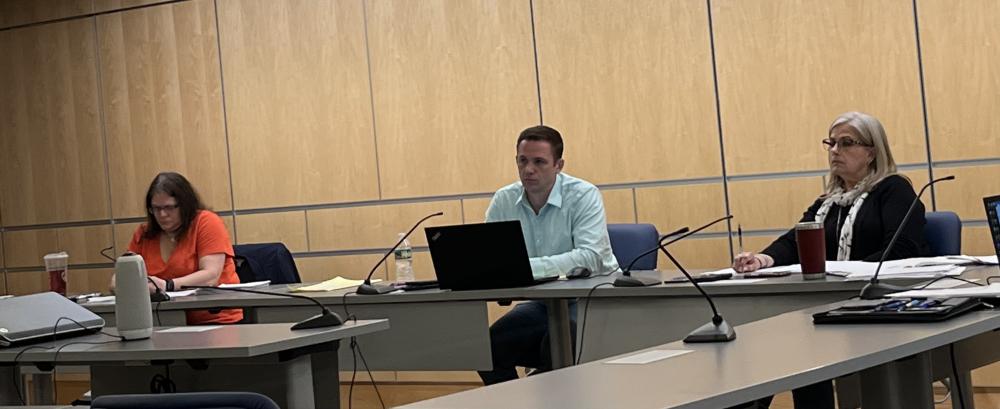Lakeville officials express concerns about MBTA housing rules
LAKEVILLE — Town officials will look to team with surrounding communities to fight back against MBTA zoning guidelines that would require increased housing.
The Select Board and Planning Board met on April 10 to discuss the town’s plan for dealing with the state’s guidelines for housing-friendly zoning near MBTA commuter rail stations to combat the housing crisis across Massachusetts.
Town Planner Marc Resnick said Lakeville is waiting to hear back from the Southeastern Regional Planning & Economic Development District about whether the town’s current dense housing district complies with the state’s requirements.
The mandatory guidelines “make sense, but not in rural communities,” said Select Board Vice Chair Evagelia Fabian. “It’s almost like asking us to tear down trees to put in housing. There’s only so many trees left and we happen to have them, so we need to be a bit protective of that.”
The state is requiring towns serviced by MBTA to create zoning for at least one district of dense housing at 15 units per acre within half a mile of transit stations, if possible.
Lakeville is considered an adjacent small town, meaning it has to create zoning to allow 231 housing units per MBTA guidelines.
Lakeville should “communicate board to board with other communities to see what we can do to slow the bleeding,’’ said Planning Board member Mark Knox.
The issue of requiring towns to accommodate more housing near public transportation sites has been controversial.
In neighboring Middleboro, town officials have refused to comply with the order by not issuing a plan of how they will follow the guidelines as the state has required.
Based on state guidelines, Middleboro has to alter its zoning to potentially allow an additional 1,471 housing units. Officials there have said this requirement would put a serious burden on the town’s infrastructure and impact the town’s character.
Officials in Lakeville have already submitted a preliminary plan to comply with the guidelines, but are now raising questions about the next steps.
Commuter rail service will end in Lakeville this December, when the Middleboro station will open. That puts a heavier burden on Middleboro to create housing opportunities compared to Lakeville.
Freetown, which shares a regional school district with Lakeville, is also a commuter rail town. It has to zone to allow 750 housing units, which concerns Lakeville town officials due to the impact it would have on the Freetown-Lakeville Regional School District.
Planning Board chair Mark Knox said he would like to work with Freetown, specifically, in order to prevent an influx of students into the Freetown-Lakeville Regional School District.
“In regards to the regional school district, we didn’t want to be complacent,” Knox said. “It’s a conversation to be had.”
Knox added that town officials are not the only people in Lakeville worried about how an influx of housing would impact the town.
“You still don’t see any homeless people,” Knox said, indicating that Lakeville does not have a pressing need for housing.
“I got approached by a lot of folks on election day that came up and said, ‘How can we stop this?’” Knox said.
The boards mentioned the push to create housing from state officials including Governor Maura Healey and U.S. Representative Jake Auchincloss.
Planning Board member Nora Cline pointed to a survey cited by Healey in which respondents said that the top priority of Massachusetts residents is creating housing options.
“I’m sure there’s going to be a ton of pressure coming down from the governor’s office on this,” Cline said.
“We’re already in so deep, I just don’t think we want to get any deeper” into complying with the guidelines, Knox said.
The boards agreed to revisit the subject at the May 22 Select Board meeting, the first Select Board meeting after Town Meeting on May 8.












